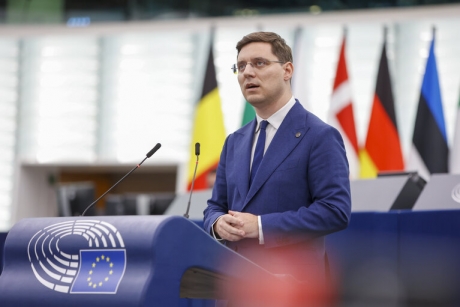MEP Negrescu on Romania’s accession to Schengen a month prior to last JHA meeting of Swedish Presidency of EU Council.
Romanian MEPs from the largest political groups in the European Parliament still believe, to varying degrees, in Romania’s chance to join the Schengen space in the second half of the current year, when the Presidency of the Council of the European Union will be held by Spain, but they see different the path to follow until the achievement of this goal, adopting standpoints ranging from “there is no strategy” to support this demarche, to “let the authorities work in peace.”
MEP of the Socialists and Democrats (S&D) group Victor Negrescu says that at the Justice and Home Affairs Council (JHA) meeting in June, the Schengen topic will probably not be included on the agenda, although he would wish this thing, “because only like this we could maintain the attention of the European officials regarding the enlargement of the Schengen space and Romania’s accession.”
At the same time, he pleaded within a meeting with the Romanian journalists in Strasbourg, that “it would be appropriate that in the European Council, at the level of heads of state and government, to try to relaunch this topic and put pressure on Austria, together with the states that support us, in such a way that the Austrian government, which has made countless previous promises, revises its behavior.”
He brought to mind that Austria did not reanalyzed the matter of Schengen enlargement, as it said it would after completing the local elections on its territory, and the Austrian Interior minister had “a radical standpoint” on the occasion of his visit to Bucharest.
“Unfortunately, the enlargement of the Schengen space has become an extremely important political subject for the right-wing ruling party in Austria. It is their main political topic and this matter has been taken including by the European People’s Party (EPP) and today, Romania risks being caught in the middle of everything which this political rhetoric means started by the Austrian prime minister [Karl Nehammer],” Negrescu stated.
Moreover, he drew attention over the fact that at the last EPP meeting, this political family did not pass a support resolution for Romania “which indicates the fact that there are issues in terms of the support for Romania at the European right-wing politics level, which is also extremely concerning.”
He said that, all Socialists-Democrats voted for Romania’s accession to Schengen, the S&D group being “the only political group where there was unanimity for Romania.”
Although probably neither the future prime minister, Marcel Ciolacu, nor the Social Democratic Party (PSD) ministers will have powers in the concrete advancement of the accession to Schengen, which fall to President Kalus Iohannis and some Liberal ministers, Negrescu said that “we are also in dialogue with Prime Minister Pedro Sanchez, with Spain taking over the Presidency of the Council of the EU in the second part of this year, in the attempt to raise this subject.”
He welcomed as a positive fact the efforts which Spain has already put in regard to unblocking Romania’s and Bulgaria’s accession to Schengen, but drew attention that, if changes of positions shall not occur by June, probably the summer is not going to change anything.
“The Spanish Interior minister discussed with the Austrian counterpart, the Spanish prime minister discussed with the Austrian chancellor, which is commendable, because this has not been done in a consistent manner by the previous presidencies. This does not mean that things will change, given the politicization of the subject. There will be a meeting in October too, but if we don’t see a change of position by June, I don’t think the summer is to change anything,” he said.
In his turn, Negrescu welcomed the efforts put in by Commissioner Ylva Johansson, who has “politically assumed this objective and almost succeeded,” however, he argues, “there is obviously a need of more influence and more involvement on behalf of the European Commission, at the highest level and on behalf of the European Council.”

